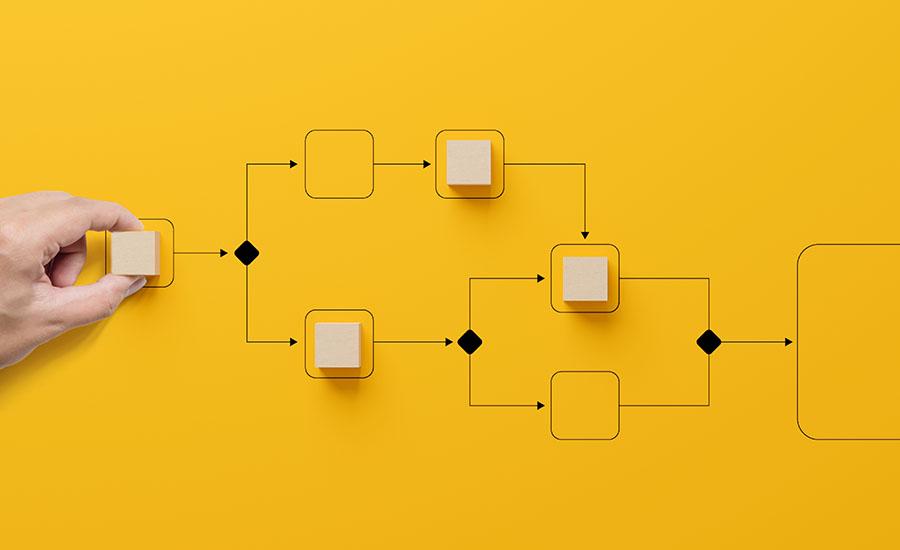Grades:
4th Grade, 5th Grade
This lesson is based off of the Artemis Roads II lesson developed by NASA. Students will be researching and developing a biome/lunar greenhouse. This is part 1 of 2 of the lesson plan.
Grades:
7th Grade, 8th Grade, 9th Grade, 10th Grade, 11th Grade, 12th Grade
Students will apply principles of design, engineering, and mathematics to create a physical or digital labyrinth inspired by the myth of Theseus. This project integrates STEM concepts with literature
Grades:
5th Grade, 7th Grade
This lesson is all about force and the influence it has on the motion of an object. In this lesson plan, students will be challenged to design a sturdy paper human house that can withstand force (wind
Grades:
4th Grade, 5th Grade, 6th Grade
Students will use Tinkercad's website to create a 3D box and lid. I provide step-by-step Google Slides on how students create this project, share videos of the directions, and additional resources for
Grades:
5th Grade, 7th Grade
This is a project to be used possibly at the end of a unit on Newton's Laws with discussions of how his laws apply to the painting and the motion of the pendulum. It can also lead to discussions of
Grades:
7th Grade, 8th Grade, 9th Grade, 10th Grade, 11th Grade, 12th Grade
This is an overview of Electronic Circuits, using TinkerCad to learn how to change components, add wires and connect a circuit. Three online simulation lessons are provided with the option to continue
Grades:
3rd Grade, 4th Grade, 5th Grade, 6th Grade, 7th Grade, 8th Grade
In this engaging and hands-on lesson, students will be introduced to the fundamental concept of microprocessors, often referred to as the "brains" of electronic devices. Using Micro:bits, a versatile
Grades:
3rd Grade, 4th Grade, 5th Grade, 6th Grade, 7th Grade, 8th Grade
In this engaging and hands-on lesson, students will explore the intersection of art and technology by designing and constructing a marker holder for a robot, allowing it to create artwork. Using the
Grades:
5th Grade
In this exciting 5th grade science lesson, students will delve into the microscopic world using microscopes and explore the field of nanotechnology. The lesson begins with an engaging introduction to
Featured
Design a Course with Friction
Grades:
6th Grade, 7th Grade
In the second part of this lesson, students will now test how friction can change the speed of a RC car. Students will first test the RC car on three different surfaces of their choice and time them
Grades:
6th Grade, 7th Grade
In this part one of two lessons, students will test the pull force of a RC car on three different surfaces. Students will learn about friction in a hands-on activity and practice calculating the mean
Grades:
4th Grade, 5th Grade, 6th Grade
In this hands-on STEM lesson, students will learn about basic electrical circuits by designing and building their own light-up wands. Using craft sticks, copper tape, an LED light bulb, a CR2032
Grades:
6th Grade, 7th Grade, 8th Grade
Calling all engineers, artists, scientists, and crafters! Our MAKER FAIRE is a venue for our “makers” to show off your talents, innovations, and creative solutions! Join the Maker Movement! Students
Grades:
4th Grade, 5th Grade
In this engaging lesson, students will explore the fascinating world of magnetism. Students will learn about different types of magnets and how they work. Additionally, we will delve into the concept
Featured
Rocket Science
Grades:
3rd Grade, 4th Grade, 5th Grade
This engaging lesson is a great introduction for space exploration units. This plan goes over the history of rockets, how they work, and how modern rockets help us explore the solar system. There are
Grades:
6th Grade, 7th Grade, 8th Grade
This is an introductory lesson to binary and circuits. In this lesson, students will learn about binary code, logic gates, and how circuits enable computers to process binary code. This lesson is
Grades:
7th Grade, 8th Grade, 9th Grade, 10th Grade, 11th Grade
This is a lesson that can be taught in 5 days or one week. The lesson was put together in collaboration with the Smithsonian Science Education Center. It talks about global goals (one of which is food
Grades:
6th Grade, 7th Grade, 8th Grade
For this lesson, students will be using the LEGO Spike Prime Kits and LEGO Mindstorm software. Students will write programs using the Color Sensor to make the Driving Base autonomous. A variety of
Featured
Eggcellent Car Race
Grades:
4th Grade, 5th Grade, 6th Grade, 7th Grade, 8th Grade
Students will design and build a car using STEM principles to safely transport a raw egg down a ramp, applying their knowledge of physics, engineering, and problem-solving.
Grades:
4th Grade, 5th Grade, 6th Grade
In this lesson, students will explore the forces of flight in rockets. They will construct a rocket using straws, clay, and index cards. Students will then use a launcher to launch their rockets and
Grades:
3rd Grade, 4th Grade, 5th Grade, 6th Grade, 7th Grade, 8th Grade, 9th Grade, 10th Grade, 11th Grade
This engineering design STEAM lesson is intended to be introduced as a playful and inventive approach to learning simple machines. Students explore levers, cams, cam followers, linkages, and other
Grades:
7th Grade, 8th Grade, 9th Grade, 10th Grade, 11th Grade, 12th Grade
Want to incorporate the Arts into your 7-12 STEM classroom? The Global Science Opera provides a way to do just that! Learn how to facilitate a STEAM collaboration with arts teachers to make it happen.
Grades:
6th Grade, 7th Grade
Students will be presented with the phenomenon of a plant that has been sealed in a bottle for over 50 years. In this lesson students will participate in investigations, conduct research, and utilize
Grades:
7th Grade
Students design and build a bumper car to test Newton's third law of motion.
Featured Lesson Plans
Check out these notable lesson plans.

Featured
Math Magic through Coding!
Grades:
2nd Grade
In this 2nd grade STEM lesson, students will learn how symbols (directional arrows) can be used to program an object's movements. They will develop an algorithm using a sequential graphic organizer to

Featured
Intro to MS Make Code (Eat the Food)
Grades:
4th Grade, 5th Grade, 6th Grade, 7th Grade, 8th Grade
MS MakeCode is the perfect stepping stone into the world of Scratch. Students will be able to create a working video game in one class period. As we all know classic video games were not built over

Featured
Kill the Dyes
Grades:
3rd Grade
In this lesson students will discover harmful effects and chemical makeups of artificial ingredients, specifically food coloring and red dyes. Students will experiment with and demonstrate capillary
